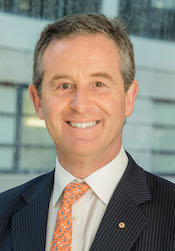
Prof David Celermejer
The Baker Heart and Diabetes Institute is urging GPs to turn their stethoscopes to valvular heart disease and, when identified, direct patients to cardiologists.
It comes after the organisation found 254,000 Australians could be living with undiagnosed heart valve disease.
Heart valve conditions have characteristic murmurs that can be heard with a stethoscope, but upskilling and routine heart checks in patients 65 years and over are needed to improve detection, the Institute wrote in a white paper sponsored by transcatheter aortic valve replacement (TAVI) manufacturer Edwards Lifesciences.
Patients also need greater education and awareness about heart valve disease symptoms in order to get treated, white paper reviewer, cardiologist and Director of Adult Congenital Heart Services and Pulmonary Hypertension Services at Royal Prince Alfred Hospital, Professor David Celermejer told the limbic.
“There are a lot of older Australians out there living with valvular heart disease, but they misattribute the symptoms of that to old age,” he said.
“So they feel a bit more breathless when they walk around, they feel a bit fatigued, maybe they get a little bit of chest pain, but they don’t want to be any trouble. They say well, ‘maybe it’s just that I’m getting older, I’m not as young as I used to be, and so I won’t seek help for it’.”
Following successful heart failure, coronary artery disease and atrial fibrillation public health campaigns, Professor Celermejer and the white paper said it was time for the “unloved cousin of heart disease” to get some attention, particularly among GPs, healthcare and health advocacy groups.
This should lead to a larger number of adults with treatable valve disease being referred to cardiologists, Professor Celermejer said.
Currently, there are a range of efficacious, evidence-based heart valve disease treatments available including surgery, TAVI and transcatheter mitral valve repair, Professor Celemejer said.
Eligible patients who have an “unacceptably high risk for surgical aortic valve replacement” can access Medicare-funded TAVI and MSAC has recommended that it be extended to those at intermediate risk, after reviewing Edwards Lifesciences’ application earlier this year.
For now, in addition to public health campaigns and increased heart checks in primary care, the white paper is calling for:
- An extension of the preventive cardiology item numbers (MBS 699 and 177) to include cardiac auscultation
- Development of translational research streams to more rapidly evaluate structural heart disease management technologies
- A review of AI-supported and hand-held echo investments and clinical application to allow for reimbursement
- Improved access to echocardiography — allowing for early detection and out-reach programs in rural areas
- Dedicated funding for service-level interventions that improve access and equity to minimally-invasive interventions
- Development of national heart valve disease guidelines to facilitate decision-making